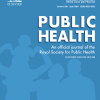Mid-term strategic plan of the Institute for Political Science (summary)
Leading the way in domestic political science: the Institute for Political Science has achieved outstanding publication performance in international journals between 2019 and 2022
Latest news

András Bíró-Nagy and Áron Szászi have published their study ’The roots of Euroscepticism: Affective, behavioural and cognitive anti-EU attitudes in Hungary’ in Sociology Compass (Q1, IF=3.1).

New monography by Tibor Valuch 'Contemporary Hungarian Society - Social Changes in Hungary from Late State Socialism' has been published by Routledge.

Attila Bartha and his co-authors Gabriel Asante and György Gajduschek have published their study "A social problem or a sacred promise? Explaining the mechanisms driving fee-free educational policy change in Ghana" in the journal Policy Studies (Q1, IF: 2.2).

Marianna Kopasz and her co-authors Ágnes Győri, Ildikó Husz and Márton Medgyesi published their study "Does attending to extremely poor clients increase the burnout of social workers?" in the European Journal of Social Work.

Ana Stojilovska and her colleagues have published their articles in the journals Energy Research & Social Science and Energies.

New journal article by András Bíró-Nagy and Áron Szászi ’Controversies of COVID-19 vaccine promotion: lessons of three randomised survey experiments from Hungary’ has been published in Public Health.

Our Institute's research professor presented on 'The Secular-Islamist Dimension of Spatial Voting: Underrepresentation in Tunisia'.

The Institute for Political Science (Ana Stojilovska) as part of a consortium led by EnAct, France won a 2-year project Women for Solidarity in Energy (WISE) under the CERV-2023-CITIZENS-CIV call worth 365,225 EUR.

Gergő Medve-Bálint and his co-author, Jakub Szabó has recently published an article entitled The "EU-Leash": Growth Model Resilience and Change in the EU's Eastern Periphery in Politics and Governance.
.jpg&w=100&h=100&zc=1)
New paper by Ervin Csizmadia 'The Logic of Hungarian Political Development (1990-2022): Historical Political Perspectives' has been published by Lexington Books.
Latest posts

In the fifth pti memo blog post, we report on a lecture by Boglárka Koller, in which she presented her project titled "Cultivating Our European Resilience and Evolution" (CORE) and its significance. Boglárka Koller is the Head of the Department of European Studies at the University of Public Service, Senior Research Fellow at the Centre for Economic and Regional Studies (KRTK), and Jean Monnet Chair. The lecture was hosted by the HUN-REN CSS Institute for Political Science on May 22, 2025, as part of its Speaker Series.

The latest post of the pti memo blog series offers insights from a thought-provoking lecture by Murat Somer, Professor of Political Science and International Relations at Özyeğin University Istanbul and Research Affiliate at the Democracy Institute of the Central European University. Titled "Quo Vadis in Turkey and Implications for Democracy in the World", the lecture explored current political developments in Turkey and their broader implications on combating democratic backsliding. The event took place on May 8, 2025, as part of the HUN-REN CSS Institute for Political Science’s Speaker Series.

The third blog post of the pti memo series summarises the lecture of Dr. Matthew Edward Bergman, Assistant Professor at Corvinus University of Budapest, titled “Ideological Conflict, Logrolling, and Policy Reform: An Analysis of Government Declarations in Western Europe.” The event was organised as part of the HUN-REN Institute for Political Science’s Speaker Series on April 10, 2025. This research, conducted jointly with Hanna Bäck (Lund University) and Wolfgang C. Müller (Universität Wien), investigates why some governments commit to more reform measures in their government declarations.

The second pti memo post summarises the lecture by Bálint Magyar and Bálint Madlovics, researchers at the CEU Democracy Institute, titled “The Russia-Ukraine War and Its Structural Consequences.” The event was organised as part of the HUN-REN Institute for Political Science’s Speaker Series on February 6, 2025.
Hungary is often portrayed as a problem case for European integration due to frequent clashes between Viktor Orbán’s government and the EU’s institutions. Yet, as András Bíró-Nagy and Gergő Medve-Bálint explain in their post on the LSE EUROPP blog, the country’s 20 years in the EU have also seen a relatively high level of compliance with EU policies and strong support for membership among the public.
.png&w=100&h=100&zc=1)
In the first pti memo post, we summarise Christian Baden’s (Hebrew University of Jerusalem) thought-provoking lecture titled “Propaganda as a Social Process.” The lecture was hosted by the HUN-REN Institute for Political Science as part of its Speaker Series event series on January 23, 2025.
















.jpg&w=100&h=100&zc=1)




.png&w=100&h=100&zc=1)